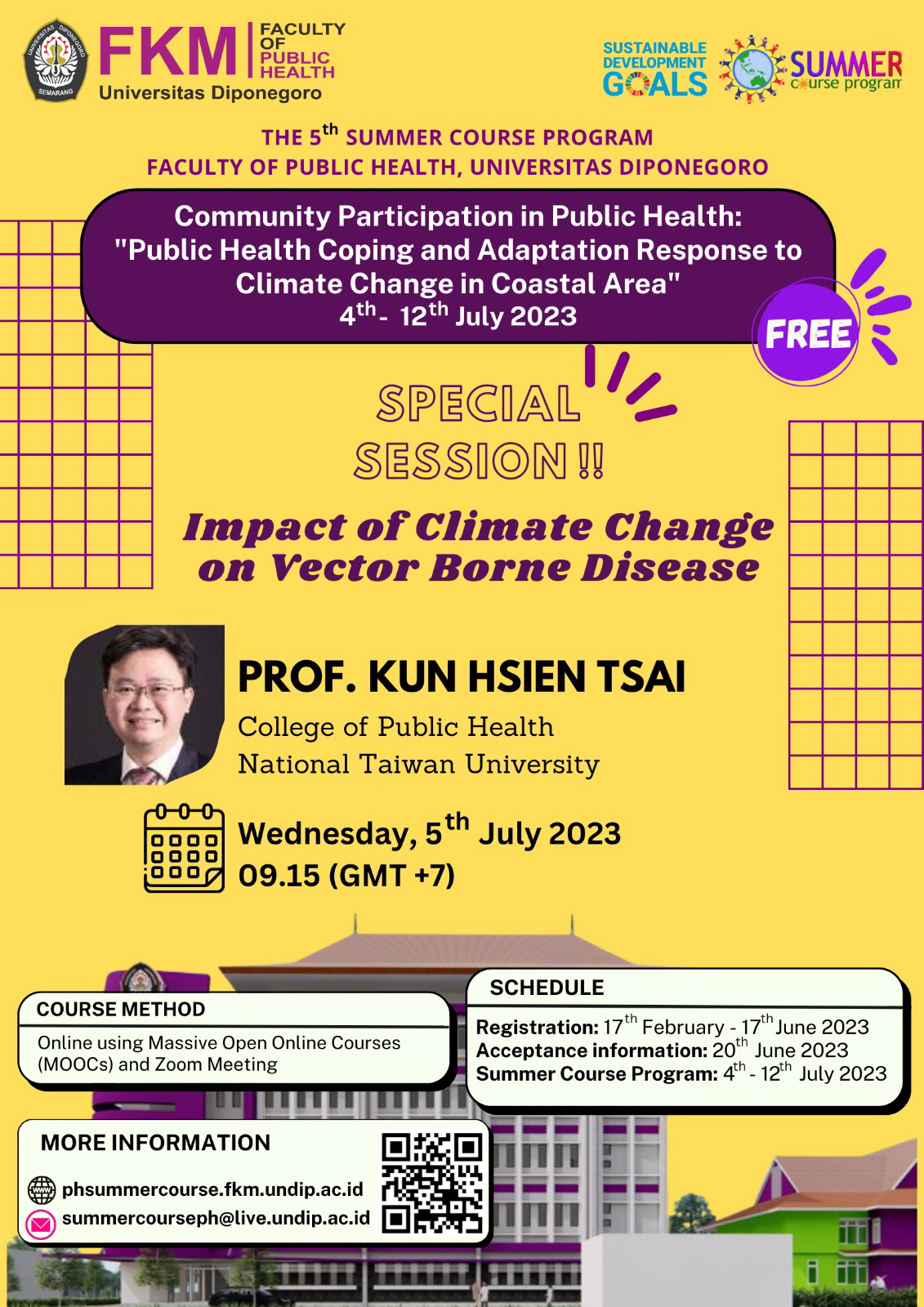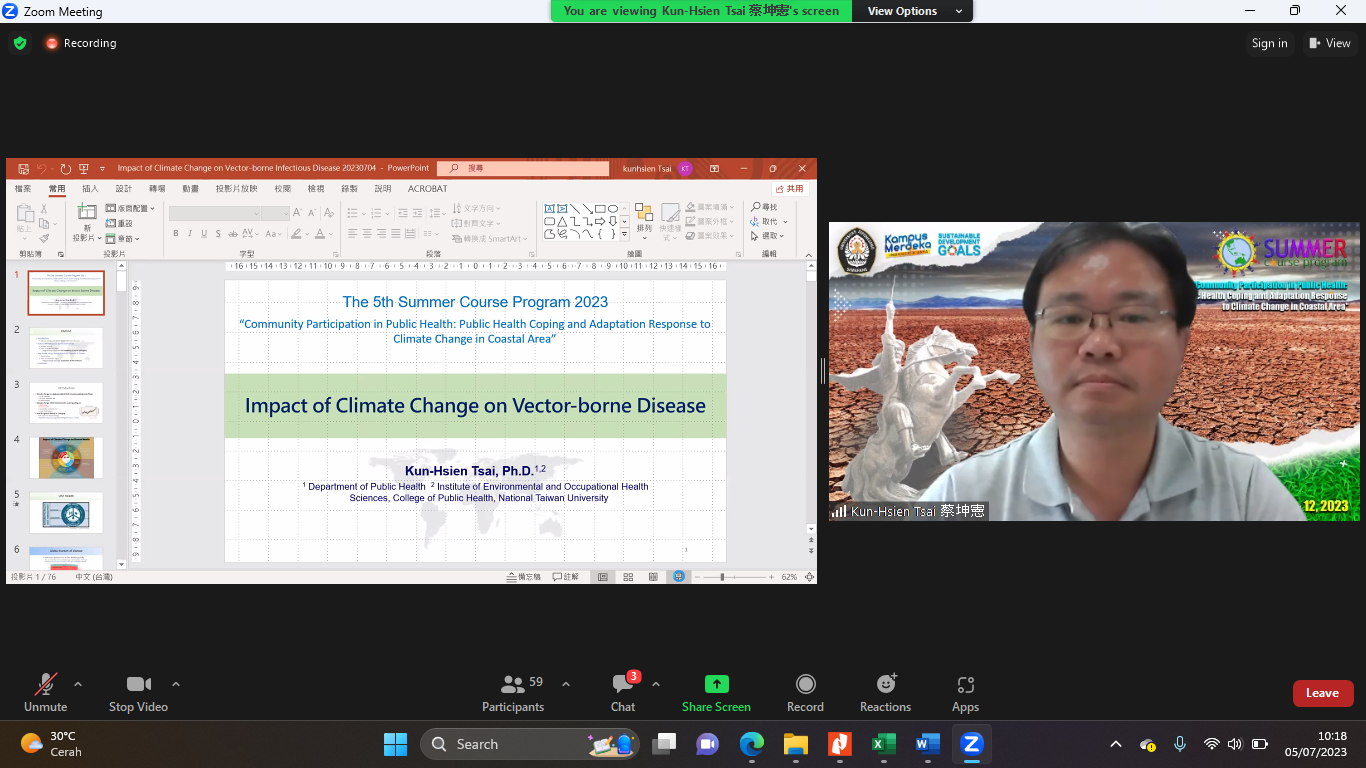
本所蔡坤憲教授受邀參與印尼三寶瓏大學公共衛生暑期課程,進行線上專題演講

Climate change is a global problem that impacts on many aspects. Biodiversity and human health are particularly affected, which exacerbate the transmission of vector-borne infectious diseases, such as malaria, dengue, and other neglected tropical diseases.
The 2023 Summer Course organized by the Faculty of Public Health, Universitas Diponegoro, with the theme "Public Health Coping and Adaptation Response to Climate Change in Coastal Area" invited various speakers from various practitioners and institutions, and was attended by 155 participants from 25 countries. One of the speakers who shared his knowledge in this Summer Course activity was Prof. Kun-Hsien Tsai from National Taiwan University (NTU), who is an expert in Medical Entomology, Vector Control, Vector-borne and Zoonotic Infectious Diseases.
In his presentation, Prof. Tsai addressed the importance of climate change by introducing vector-borne diseases on two island nations, Taiwan in Asia and Sao-Tome and Principe in Africa. Malaria has been eliminated in Taiwan since 1965; therefore, Prof. Tsai and his colleagues brought the successful experience to Sao-Tome and Principe and helped combat malaria. Genetics and behaviour of local Anopheles mosquitoes have been studied to improve the effectiveness of vector control. With intervention of multiple measures, the incidence of malaria has been greatly reduced and achieved pre-elimination on the island of Principe. In addition to malaria, Prof. Tsai reported tungiasis, spotted fever group rickettsioses, scrub typhus, dengue fever, chikungunya fever, and Rickettsia felis in Sao Tome and Principe as well as human anaplasmosis in Taiwan using an One-health approach.
While climate change redistributes biodiversity, the control of vector-borne diseases cannot be accomplished only by one sector. It is necessary to integrate multiple perspectives from different disciplines, namely joint efforts between sectors in a country, so vector control methods can run effectively and efficiently.

